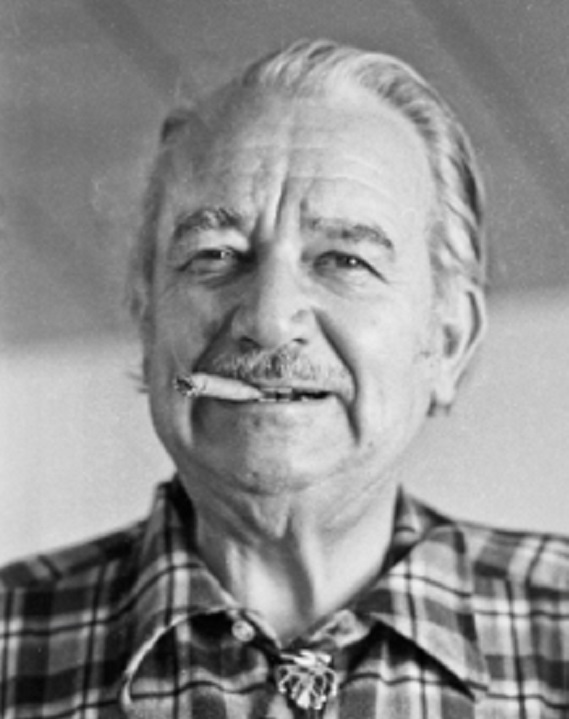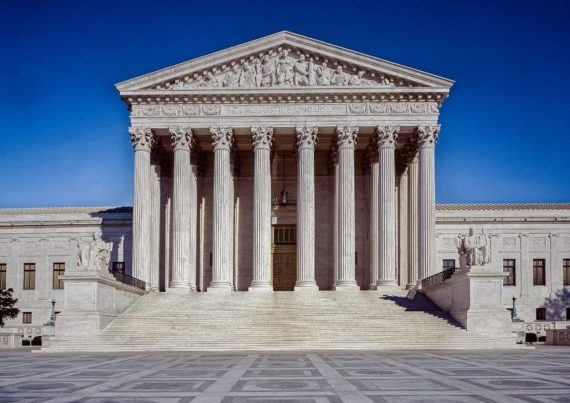Manly Wade Wellman never penned an autobiography, despite the fact he published 500 stories and articles, won the World Fantasy Award and Edgar Allan Poe Award, and even edged out William Faulkner to win the Ellery Queen Mystery Magazine Award in 1946.
Yet, in one of his most famous short stories, Wellman did reveal how he must have seen himself throughout his career, from a crime reporter for The Wichita Eagle, to Assistant Director of the WPA’s Folklore Project in New York City, and finally as “the dean of fantasy writers.” In “The Desrick on Yandro,” the protagonist, John the Balladeer, has to sing for his supper to a group of “ladies and men in costly clothes.” Confident and entertaining despite his modest attire and outsider ways, John charms the crowd with forgotten classics, including “Rebel Soldier.” Like John the Balladeer, Manly Wade Wellman was a rustic but worldly singer of old ballads, as well as a walking, talking ambassador and promoter of traditional Southern culture wherever he went.
Born to missionary parents in present-day Angola in southwest Africa, Wellman picked up numerous folk tales from the local natives as a boy. Educated in Washington, DC, Salt Lake City, and Wichita State University, Wellman settled into a career as a newspaperman in Wichita, Kansas, but gradually fell into the gravitational pull of his ancestral homeland. Though his early life was that of a rootless wanderer, his Southern roots ran deep. It was his great-uncle Manly who insisted the boy be named after Confederate General Wade Hampton. While working in Kansas during the late 1920s, he met and befriended folklorist Vance Randolph, who passed on to Wellman much of his encyclopedic knowledge of Ozark culture and mountain magic. Southern mountain culture continued to inspire Wellman throughout his long writing career. During the 1920s and 30s, he contributed to several science fiction and fantasy magazines while working in journalism.
Wellman’s familiarity with Southern folklore arose not just from scholarly or literary motivations, but from a deep-rooted love of the South that he proudly wore on his sleeve. Manhattan-born scriptwriter Alfred Bester described meeting Wellman in 1939: “Mort Weisinger introduced me to the informal luncheon gatherings of the working science fiction authors of the late thirties… The vivacious compère of those luncheons was Manley [sic] Wade Wellman, a professional Southerner full of regional anecdotes. It’s my recollection that one of his hands was slightly shriveled, which may have been why he came on so strong for the Confederate cause. We were all very patient with that; after all, our side won the war.”
After serving in World War II, Wellman and his wife Frances moved to North Carolina, where Wellman immersed himself in Appalachian folklore and Southern history, with particular attention to the War Between the States. He continued to write science fiction and fantasy short stories and novels, but expanded his bibliography to include several respected and popular histories, including Rebel Boast: First at Bethel, Last at Appomattox, They Took Their Stand: The Founders of the Confederacy, and a classic biography about his namesake, Giant In Gray: A Biography Of Wade Hampton Of South Carolina.
Folklorist, popular historian, raconteur, and a lover of fine tobacco and an occasional “good lick of blockade whiskey,” Manly Wade Wellman personified the Southland he knew and loved so well.
Here’s Waylon Jennings singing “Rebel Soldier,” one of Wellman’s favorite songs:







